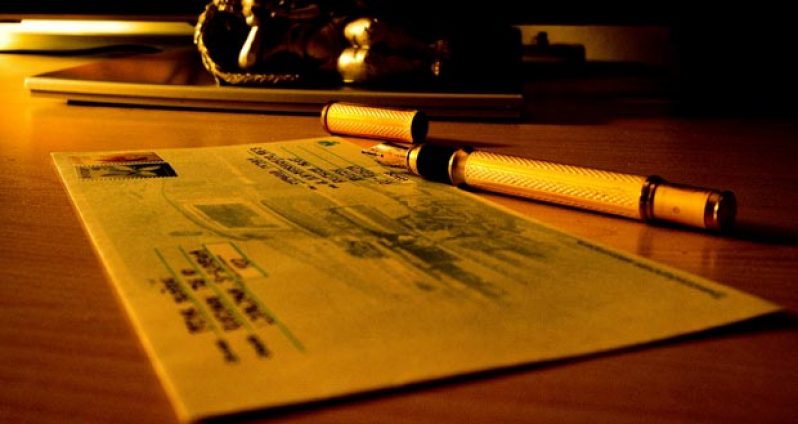THE JOB of an opposition party, they say, is to ‘make politics’. And the main parliamentary opposition in Guyana—A Partner for National Unity (APNU)—seems to be quite obsessed in making the politics of its choice.
Never mind that in reality APNU is hardly anywhere near to influencing even the semblance of “national unity”, either by rhetoric or action, since its emergence as a coalition of parties to contest the November 2011 general elections. Instead of, teaming up with what remains, by some 95 percent—the People’s National Congress Reform (PNCR).Following repeated failures by the PNCR’s previous leader, Robert Corbin, to achieve victory at free and fair elections, APNU’s creation surfaced in time for the November 2011 parliamentary elections under the chairmanship of retired Brigadier of the Guyana Defence Force, David Granger. He had earlier secured, by slim a majority of 15 votes, the leadership of the PNCR, against Carl Greenidge, a former Finance Minister.
The other “parties” in the APNU coalition, at formation, were known as: Guyana Action Party (GAP), National Front Alliance (NFA) and the Working People’s Alliance (WPA).
The WPA factor
Assuming that GAP and the NFA are still FUNCTIONING entities, appropriately accountable to constituents at structured meetings or congresses, the WPA was, at the time, the only of the trio of small parties that was recognised for its legitimacy based on historical formation and performances.
I do not know how often the WPA holds committee meetings or delegates conferences these days to maintain integrity with its support base—whatever the current size.
There are, however, political watchers who, in retrospect hold the view that the party’s primary “decision makers” did not sufficiently consider how more useful it could have been to avoid the embrace of the old PNC (now in new political clothing as APNU), in favour of remaining an independent political organisation capable of making public interventions as necessary in Guyana’s best interest.
Right now APNU’s primary focus seems committed to destructive opposition politics that seriously threatens Guyana’s path of continued economic growth.
APNU is the coalition that so often manipulates a one-seat majority in the 65-member parliament–thanks to ever-ready support from the Alliance For Change (AFC) whose own leadership structure seems infected with a visceral hatred for the governing PPP of which two of its better known parliamentarians were once stout defenders.
Derailing projects
Latest manifestation of APNU’s politics for derailing Guyana’s peaceful path to social and economic progress is its refusal to reach a cooperation formula with the government to prevent Guyana from being ‘blacklisted’ by the Financial Action Task Force (FATF) by parliament’s failure—to date—in approving the much required legislation known by the long name of “Anti-Money Laundering and Countering of the Financing of Terrorism Act (AML/FCT).
Before this, as Guyanese would be fully aware, there was the APNU/AFC’s political “success” (?) in frustrating the government’s legislative effort to help make a reality of Guyana’s most significant economic development effort since political independence—Amalia Hydro-electric project.
Currently, APNU’s leader, Granger, is busy attracting media attention by his expressed “concerns” over reports originating in the United States of America about a Mafia-masterminded drug-link involving Mexico and Italy and also Guyana.
Last week he chose to take his “concerns”—based on media reports—to the top brass of the Guyana Defence Force (GDF). He may mean well. It is, however, difficult to escape the perception that the former Brigadier is politically milking a very sensitive national security matter to score a questionable political advantage.
For a start, Mr. Granger is far too experienced not to appreciate the inescapable political reality that the hierarchy of today’s GDF would be quite mindful of their obligation in this vital matter of national security to first alert the Head of State, President Donald Ramotar, BEFORE sharing or discussing what they have learnt with him, either as APNU’s chairman or parliamentary Opposition Leader.
And why not? After all, the years when PNC-inspired and fulfilled “party paramountcy,” of which Mr. Granger was an important ‘player’ have, thankfully, long past. The GDF’s hierarchy knows this as well as the hierarchy of the Guyana Police Force of which a retired Commissioner of Police is now an APNU parliamentarian
What is quite relevant at this stage is the extent to which the authorities in the USA are prepared to share whatever information they have with the Guyana authorities to help in smashing this claimed bizarre mafia-linked major drug-trafficking. We must await the FACTS.
Analysis by Rickey Singh



.jpg)









